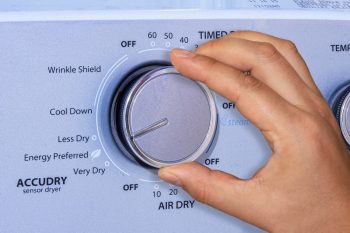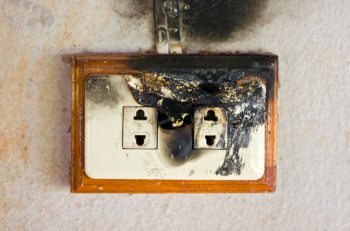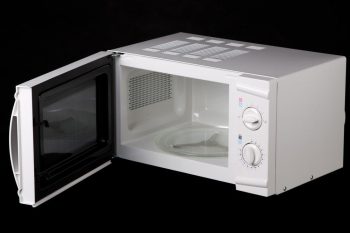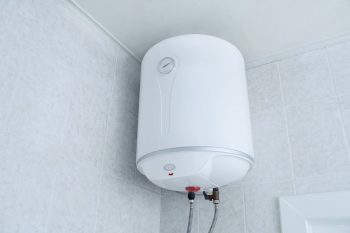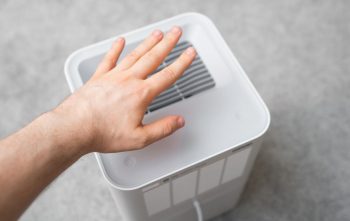
There are multiple benefits to having a dishwasher in the house. Homeowners know this; the convenience of washing dishes after a long day at work.
However, they do not come cheap, and any problem can be a concern.
A common issue many experience is a blown thermal fuse in the dishwashing unit. However, replacing the fuse is pretty straightforward.
On the other hand, it can be irritating if it happens too often.
If you are wondering why this keeps happening to your dishwasher, fear no more; we’ve got you covered.
We will examine why the dishwasher’s thermal fuse keeps blowing and how to fix the issue.
Here are the most common reasons the dishwasher thermal fuse keeps blowing:
- Water leaks
- Damaged wires
- Power surges
- Defective temperature sensor
- Loose connections
In this article, we will explore what dishwasher thermal fuses are and what they do. We will also examine why the dishwasher’s thermal fuse keeps blowing and how to fix the issue.
What Is a Thermal Fuse in a Dishwasher?
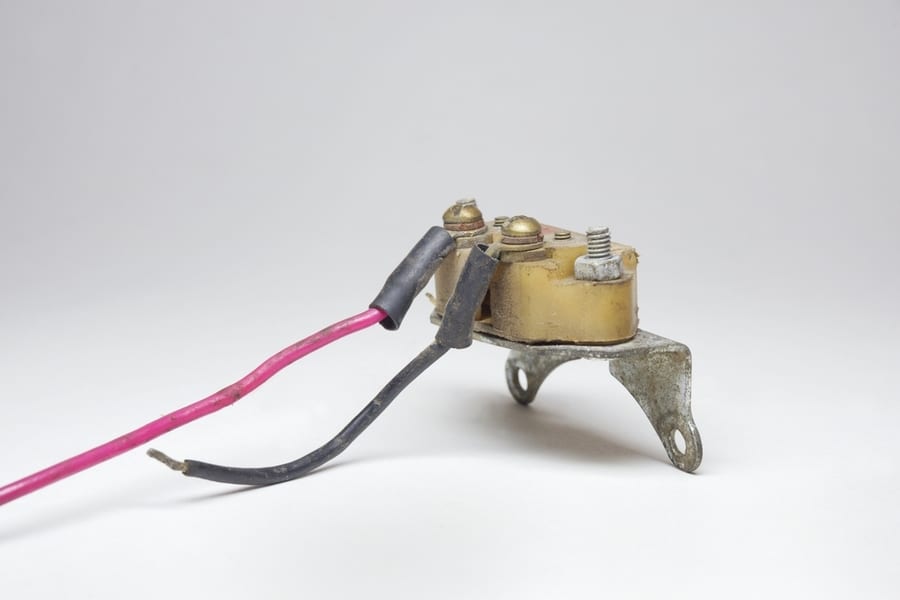
Like many electrical appliances, dishwashers have a couple of safety features added to the unit to prevent electrical accidents or fires.
The thermal fuse is one of those safety features.
Unlike other fuses sensitive to current flow, thermal fuses are sensitive to temperature changes in the dishwasher.
These fuses react to excessive heat, causing them to blow or trip.
However, thermal fuses do react to excessive current if it is sufficient enough to cause the fuse to heat up.
How the Thermal Fuse in a Dishwasher Works
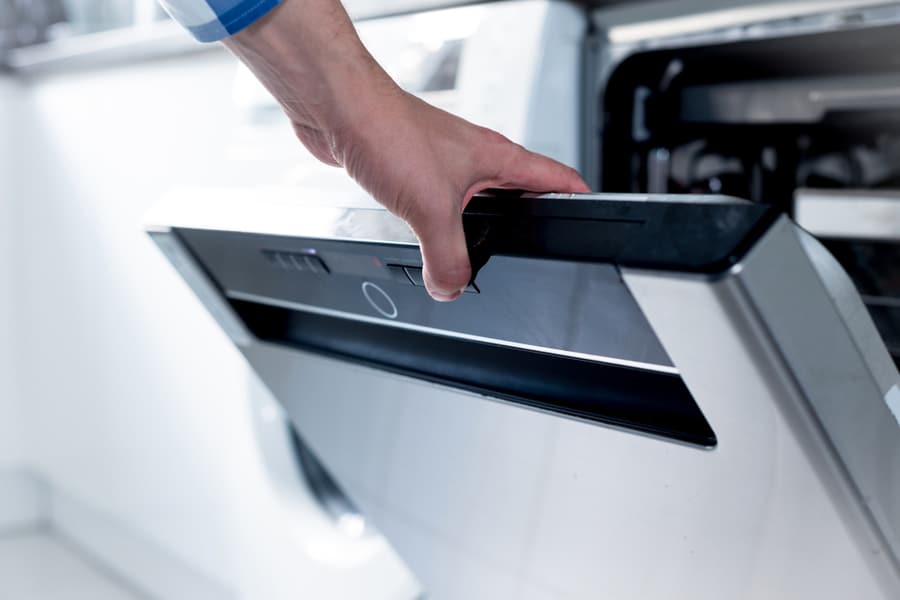
Thermal fuses are found in heat-producing electrical appliances like your dishwasher because the unit requires hot water to clean the dishes adequately.
They work by cutting off the current to the heating element in the washer once the temperature limit is exceeded.
Otherwise, if the heating element continues producing more heat, the dishwasher will overheat and start a fire.
Note: Dishwashers have two types of thermal fuses: The high-limit thermostat connected to the bottom of the tub and the second thermal fuse found near the control board.
However, both fuses serve the same purpose.
5 Reasons Your Dishwasher Keeps Blowing the Thermal Fuse
Now that we know the purpose of the themal fuse in your dishwasher, let us look at why it keeps blowing even after installing a new one.
Keep in mind that a dishwasher is an electrical appliance. If you need to inspect the unit, you should take all precautions to ensure you do not damage the device or get electrocuted.
1. Water Leaks

Water leaks might be a culprit of the blown thermal fuse.
A damaged tub or drain pipe can cause water to leak into the dishwasher’s internal components, leading to a fuse blowing.
Furthermore, when moisture settles on the surface of the motor, it can also cause the fuse to trip as an extra precaution, lessening the damage to the unit.
Fixing Water Leaks in Your Dishwasher
If you notice any stagnant or dripping water under the washer, call a professional to help out.
Handling the issue yourself might cause more harm than good to the dishwasher’s internal components, like the motor.
2. Damaged Wires

Secondly, damaged cables can also cause the fuse to blow.
When damaged or exposed wires come into contact with each other or the unit’s metallic housing, current can jump through them, causing a short circuit.
A short circuit can cause the thermal fuse to heat up and trip as a safety precaution.
Repairing Faulty Wires
Before fixing any wires, drain all the dishwasher’s water and unplug it from the power supply. Look at the appliance’s user manual to locate and identify its wire connections.
In most cases, the dishwasher’s wiring is housed at the rear or bottom of the unit. You will need to take out the protective panels before inspecting the wires.
When you find the exposed wire, you must splice it and then securely wrap it with electric tape.
Be careful not to damage other wires when doing the repairs, as it might cause more issues. If you are unsure, always call a professional for help.
3. Power Surges
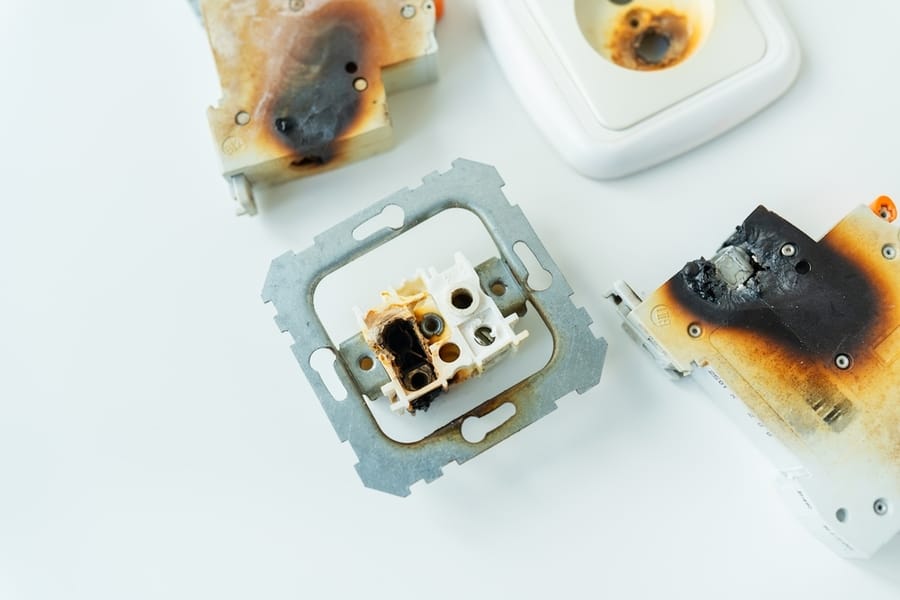
An erratic power supply can also cause the thermal fuse to keep tripping.
Like most other electrical appliances, power surges can affect how effectively the thermal fuse works. Overloading or inconsistent power supply can cause considerable heat buildup in the fuse, causing it to blow.
Fixing a Power Surge Issue
If the power surge only happens to the dishwasher, it could be a problem with the circuit breaker or socket. Try changing the socket to see if the issue gets resolved.
On the other hand, a faulty circuit breaker should be fixed by a professional electrician.
4. Defective Temperature Sensor

The dishwasher might also have a defective temperature sensor.
The dishwasher relies on the temperature sensor thermostat to detect how hot the water in the tub is and stop the heating element when the desired temperature is achieved.
However, if the sensor is faulty, it can falsely detect the water temperature and fail to turn off the heating element.
If the sensor fails, the water continues to heat up until the thermal fuse’s temperature limit is reached.
The fuse blows to protect the washer from overheating and getting damaged.
Fixing a Defective Temperature Sensor
The best option to fix the issue is to replace the sensor with a new one.
Make sure to buy a manufacturer-recommended part for better compatibility and prevent expensive repairs down the road.
Replacing the sensor can be tricky, so it is better to call a professional for the installation.
However, if you are confident enough, you need to look at the user manual and identify the location of the temperature sensor.
Before starting the replacement, drain the dishwasher and unplug it. Once you locate the sensor, you need to remove any panels in the way.
Afterward, remove the temperature sensor connector, and replace the defective sensor with a new one.
5. Loose Connections
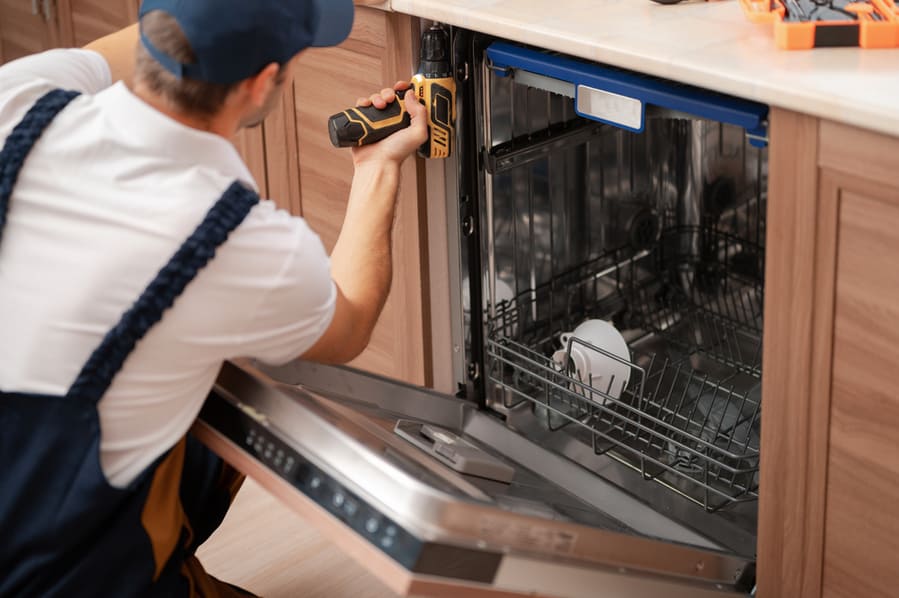
The last reason for the dishwasher’s thermal fuse blowing is loose electrical connections.
The dishwasher plug, wires, or wire harness can be loosely fitted together, causing electrical arcing, short-circuiting, and overheating.
In this case, the thermal fuse will trip due to exceeded temperature limits and stop current flow.
Fixing Loose Connections
The ease of fixing a loose connection depends on its location. To tighten a loose plug, you need to open it up, secure all wires to their respective pins, and then close it up.
While fixing a loose plug is straightforward, the same cannot be said if you have to secure a dishwasher’s wire harnesses.
Call a professional to inspect the wire harnesses and safely secure them.
Conclusion
Constantly replacing the thermal fuse in a dishwasher can be a real nuisance. However, you can save a few bucks by getting to the root of the issue and avoiding expensive repairs later.
Damaged wires and loose connections are the most common reasons the dishwasher’s thermal fuse keeps tripping.
In addition, water leaks, power surges, or a defective temperature sensor can also be a problem.
Frequently Asked Questions
What Does a Thermal Fuse Do on a Dishwasher?
The thermal fuse is a safety device that prevents the dishwasher from overheating. If the fuse’s temperature limit is reached, the fuse trips and cuts off the current to the dishwasher.
Can You Replace the Thermal Fuse in Your Dishwasher With a Normal Fuse?
No! The thermal fuse monitor heats and protects your dishwasher from overheating.
Standard fuses are not temperature sensitive, meaning they will not protect your appliance if the washer exceeds the temperature limit, which can lead to a huge fire hazard.


